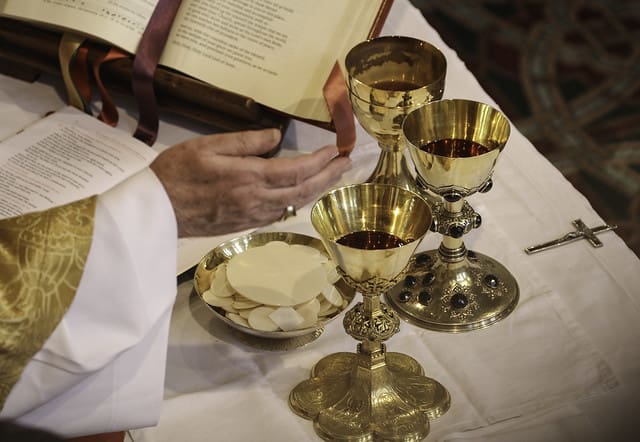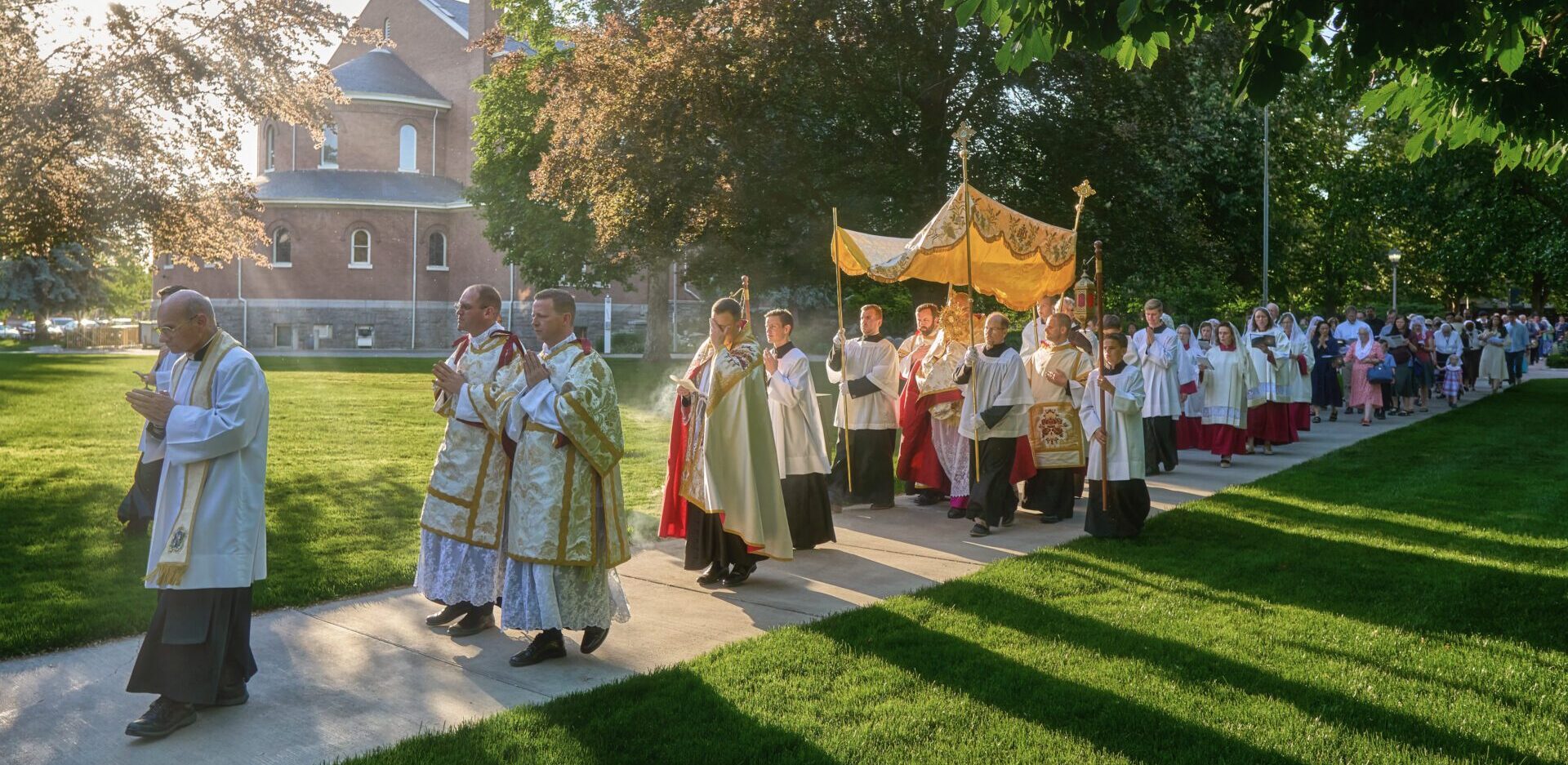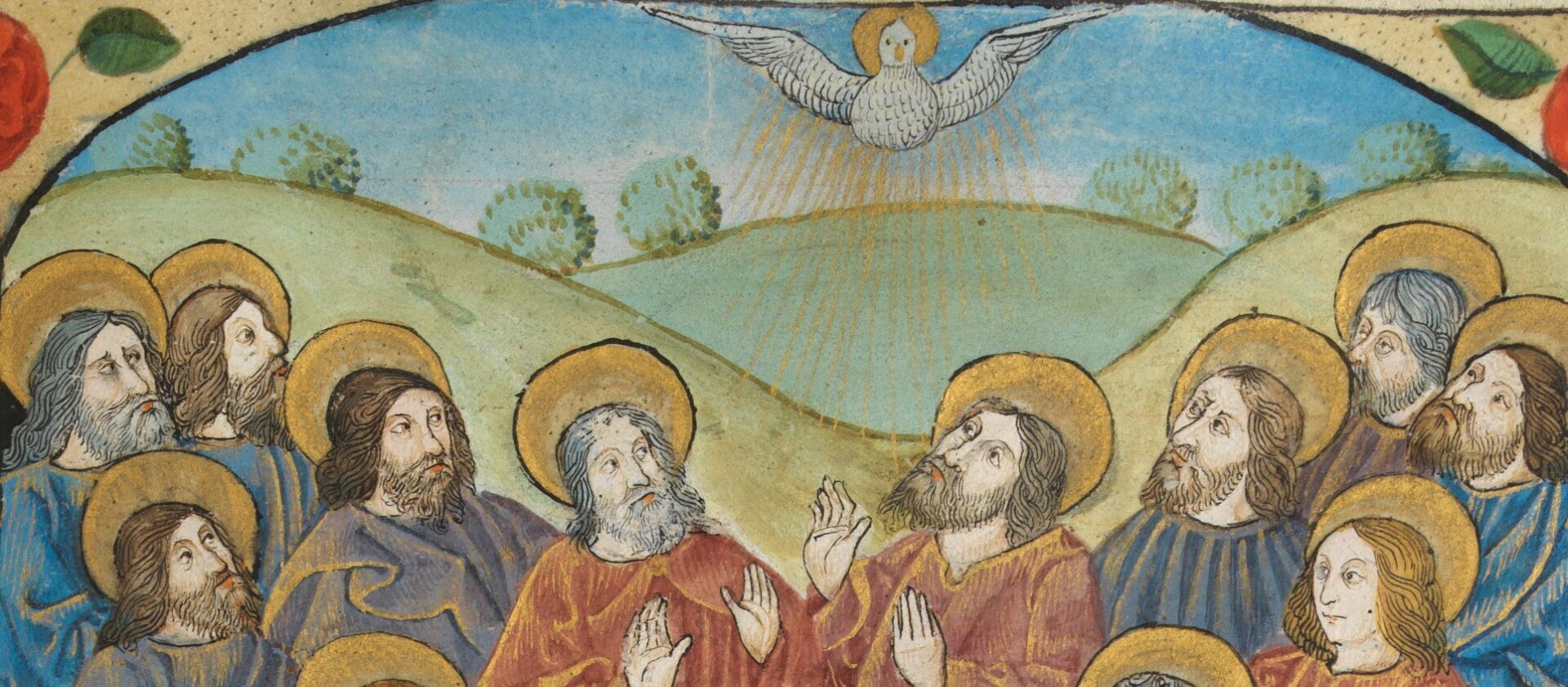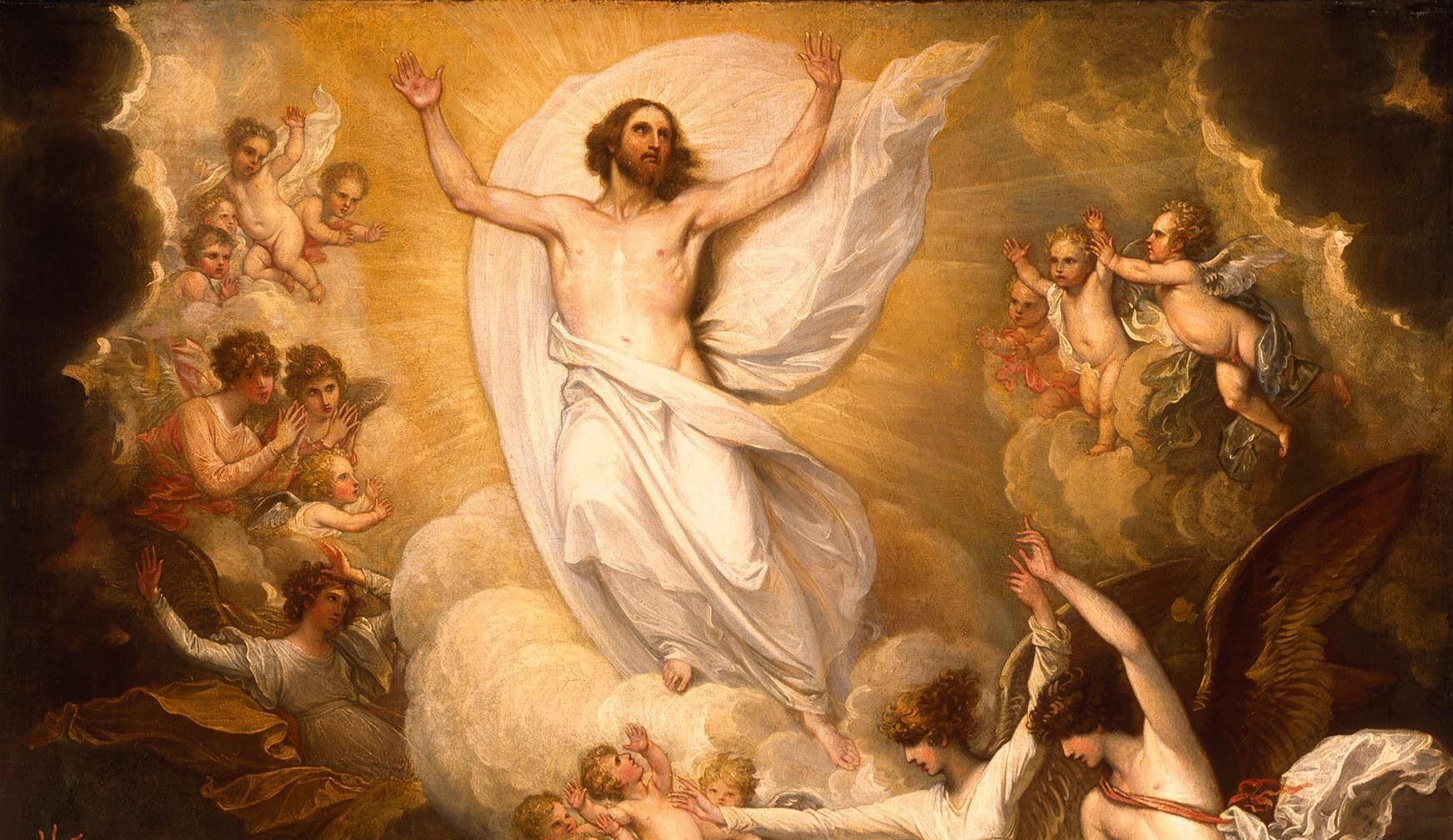Chapter Two of the General Instruction of the Roman Missal (GIRM) describes several different elements of the Mass, such as the reading and explaining of the Word of God, the importance of singing, as well as gestures and bodily postures. Also included among these elements are the prayers and other parts pertaining to the priest. Chief among these prayers is the Eucharistic Prayer followed by the Collect, the Prayer over the Offerings and the Prayer after Communion.
With these prayers God is addressed by the priest celebrant as he presides over those assembled in the name of Christ and in their name (see GIRM 30). These prayers, the so-called “presidential prayers,” are to be carried out by the priest with a loud and clear voice for all to hear and, depending on the solemnity of the occasion, may be sung or recited (see GIRM 32 and 38).
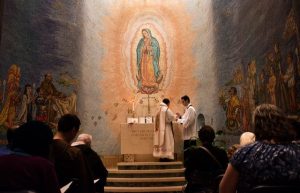
In contrast to the “presidential prayers” and all the other parts of the Order of Mass (OM) that belong to the priest celebrant in his role of presiding over the prayer of the assembly (see GIRM 93), there is a series of additional prayers that belong to him alone. These personal prayers of the priest celebrant are often misunderstood and even at times neglected. The GIRM does not give these prayers a title but rather underscores their meaning and indicates when they occur during the Mass (see GIRM 33).
With these personal prayers, the priest celebrant—as the one with the power of Holy Orders to offer the Sacrifice in the person of Christ (see GIRM 93) and throughout the course of the Eucharist praying in the name of the Church and those assembled—prays also and only in his own name (see GIRM 33). Thus, these personal prayers allow the priest celebrant to focus on his unique role and as such prompt him to carry out this role in an intentional manner with attentiveness and devotion (see GIRM 33).
The GIRM presents these prayers as taking place before the priest proclaims the Gospel in the absence of a deacon (see GIRM 132 and OM 14), after the bread and wine have been set apart on the altar for the Sacrifice during the preparation of the gifts (see GIRM 143 and OM 26), during his preparation and reception of Holy Communion (see GIRM 156 and 158 and OM 131 and 133) and finally as he purifies the sacred vessels (see GIRM 163 and OM 137). The priest celebrant bows profoundly as he prays the prayer before the Gospel and during the preparation of the gifts. He stands upright for the other prayers, including the preparation prayer for Holy Communion.
In every instance in which these personal prayers are presented in the GIRM and in the Order Mass, there is the further instruction that they are to be prayed quietly. This means that only the priest himself hears these prayers. They are not intended for those assembled but for his benefit and that of his ministry throughout the Mass. The ars celebrandi that guides the priest celebrant to carry out each part of the Eucharist according to its meaning and purpose exhorts him to attend to these personal prayers with renewed devotion and as occasions of quiet prayer.
The Private Prayers of the Priest
Prior to proclaiming the Gospel:
Cleanse my heart and my lips, almighty God,
that I may worthily proclaim your holy Gospel.
(OM, 14)
At the Orate, fratres (“Pray, brethren”):
With humble spirit and contrite heart
may we be accepted by you, O Lord,
and may our sacrifice in your sight this day
be pleasing to you, Lord God.
(OM, 26)
In preparation for receiving communion after the Agnus Dei:
Lord Jesus Christ, Son of the living God,
who, by the will of the Father
and the work of the Holy Spirit,
through your Death gave life to the world,
free me by this, your most holy Body and Blood,
from all my sins and from every evil;
keep me always faithful to your commandments,
and never let me be parted from you.
Or:
May the receiving of your Body and Blood,
Lord Jesus Christ,
not bring me to judgment and condemnation,
but through your loving mercy
be for me protection in mind and body
and a healing remedy.
(OM, 131)
At the reception of the host and chalice:
May the Body of Christ
keep me safe for eternal life.
May the Blood of Christ
keep me safe for eternal life.
(OM, 133)
As he purifies the sacred vessels:
What has passed our lips as food, O Lord,
may we possess in purity of heart,
that what has been given to us in time
may be our healing for eternity.
(OM, 137)
